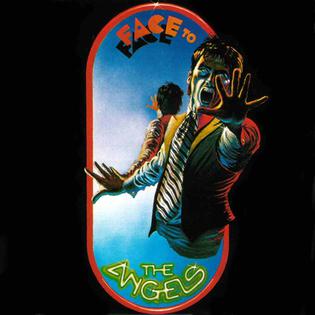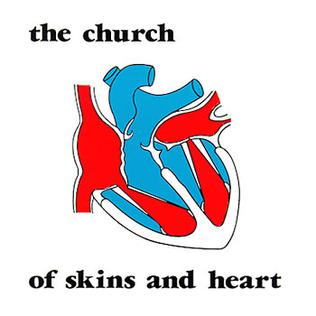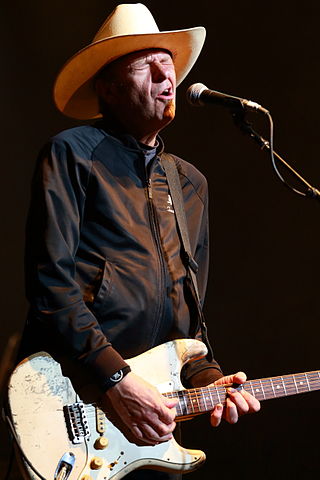Related Research Articles
Pub rock is a style of Australian rock and roll that peaked in popularity throughout the 1970s and 1980s, and that continues to influence Australian music into the 21st century. It is named after the live music circuit in which most associated bands developed their sound: inner-city and suburban pubs. These often noisy, hot, small and crowded venues favoured loud, riff-based heavy rock.
Not Drowning, Waving were a musical group formed in Melbourne, Australia, in 1983 by David Bridie and John Phillips. Their music combined elements of rock, ambient music and world music; their lyrics dealt with characteristically Australian topics: word-pictures of landscapes and people, the seasons, and some political issues – such as Indonesia's invasion of East Timor. The group released six studio albums and two soundtracks until disbanding in 1994, they briefly reformed in 2001, 2003 and 2005–2006. From 2005 to 2007, they issued three compilation albums. Not Drowning, Waving won the ARIA Award for Best Independent Release at the ARIA Music Awards of 1992 for Proof, their soundtrack for the 1991 film of the same name. In 1991, Bridie and fellow members of Not Drowning, Waving, formed a side-project, My Friend The Chocolate Cake to play more acoustic-based material.
Spectrum are an Australian progressive rock band which formed in April 1969 and broke up in April 1973. The original line-up was Mark Kennedy on drums, Lee Neale on organ (ex-Nineteen87), Bill Putt on bass guitar, and Mike Rudd on guitar and lead vocals. In August 1970 Kennedy was replaced by Ray Arnott on drums. These members also performed under the alter ego, Indelible Murtceps, from 1971 to 1973. Spectrum had a number-one hit, "I'll Be Gone", on the Go-Set National Top 60 singles chart. After Spectrum and Indelible Murtceps disbanded, Putt and Rudd formed Ariel. In 1999 the pair formed Spectrum Plays the Blues, which later trimmed their name back to Spectrum. On 7 August 2013 Bill Putt died, after a heart attack.

Face to Face is the second studio album by Australian hard rock band, the Angels, which was released in June 1978. It was co-produced by the band with Mark Opitz, which peaked at No. 18 on the Kent Music Report Albums Chart. For shipment of 280,000 copies, it was accredited as 4× platinum.
Peter William "Pete" Wells was the founder and slide guitarist in Australian hard rock band, Rose Tattoo, from 1976 to 1983. He was previously bass guitarist with the pioneering heavy metal outfit Buffalo from 1971 to 1976. Wells also had a solo career and issued albums, Everything You Like Tries to Kill You (1991), The Meaning of Life (1992), No Hard Feelings (1993), Orphans (1994), Go Ahead, Call the Cops (1996), It's All Fun and Games 'till Somebody Gets Hurt (1999), Hateball (2000) and Solo (2002). In 2002, he was diagnosed with advanced prostate cancer and, on 27 March 2006, Wells died of the disease, aged 59. Rose Tattoo were inducted into the Australian Recording Industry Association (ARIA) Hall of Fame on 16 August of that same year.
Axiom were an Australian country rock band formed in May 1969. Founding mainstays were Brian Cadd on lead vocals and piano, Don Mudie on bass guitar, Glenn Shorrock on lead vocals and Chris Stockley on lead guitar (ex-Cam-Pact). Don Lebler on drums replaced Doug Lavery in the following year. They released two studio albums, Fool's Gold and If Only..., but had disbanded before the latter appeared. Their top 10 singles are "Arkansas Grass" (1969), "A Little Ray of Sunshine" (1970) and "My Baby's Gone" (1971). Fool's Gold was listed in the book 100 Best Australian Albums.

Of Skins and Heart is the debut album by the Australian psychedelic rock band The Church, released in April 1981 by EMI Parlophone. It peaked at No. 22 in the Australian Kent Music Report Albums Chart.
Primary were an Australian electronic rock band which formed in 1995 the Fonti brothers: Jamie on keyboards and Sean on bass guitar, and Connie Mitchell on lead vocals. According to Australian musicologist, Ian McFarlane, the group were "Dominated by South African-born [Mitchell]'s hyperactive and full-frontal vocals, with thunderous electronic rock underpinning the music, Primary sounded like a techno Skunk Anansie. Jamie Fonti coined the phrase 'Hybrid Electronica Rock' in order to describe the band's sound." The group released two albums, This Is the Sound and Watching the World. They disbanded late in 2003.
James Kevin Hocking otherwise known as Jimi the Human is an Australian musician. He has been a member of hard rock groups, The Angels (1988) and The Screaming Jets. As a solo artist he has fronted various backing bands playing hard rock, electric and acoustic blues by providing lead guitar, vocals, mandolin and keyboards. In 2005 he won the Solo/Duo category at the International Blues Challenge in Memphis, Tennessee.
Scattered Order are an Australian post punk band, which started as an experimental rock trio. They were formed in 1979 by founding mainstay Mitch Jones on vocals, guitar and bass guitar and Michael Tee on guitar and synths. Their line up changed often through the 1980s and 1990s. In late 1983 Drusilla Johnson joined on synthesiser and vocals – Johnson and Jones later married. The band went on hiatus from 2000–2011, reforming with a line-up featuring Jones, Tee and Shane Fahey from Makers of the Dead Travel Fast.
Innocent Bystanders were a Perth based band formed in 1983 featuring vocalist/songwriter Brett Keyser and guitarist Diesel.

Spencer Patrick Jones was a New Zealand guitar player and singer-songwriter from Te Awamutu. From 1976 he worked in Australia and was a member of various groups including The Johnnys, Beasts of Bourbon, Paul Kelly and The Coloured Girls, Chris Bailey and The General Dog, Maurice Frawley and The Working Class Ringos, and Sacred Cowboys. He also issued ten albums as a solo artist. In May 2012 Australian Guitar magazine rated Jones as one of Australia's Top 40 best guitarists.

Xenophobia (Why?) is the third studio album by Australian rock band Spy vs. Spy, it was produced by Les Karski and Guy Gray, and released through WEA in March 1988. For this album Spy vs Spy were known as v. Spy v. Spy, and the line-up was the original trio Craig Bloxom on bass guitar/lead vocals, Cliff Grigg on drums/percussion and Mike Weiley on lead guitar/vocals.

A.O. Mod. TV. Vers. is the second studio album by Australian rock band Spy vs Spy, produced by Leszek Karski and released through WEA in December 1986.

Fundamental or Fundamental As Anything is the fifth studio album released by Australian rock/pop group, Mental As Anything. The album was produced by Richard Gottehrer and was released on Regular Records in March 1985. It peaked at #3 on the Australian Kent Music Report albums charts.

The discography of Australian hard rock band Rose Tattoo includes seven studio albums, two live albums, seven compilation albums and nineteen singles.

Tablewaiters were an Australian Post-punk band active from 1980 to 1986. They were founded by Tony Ameneiro on synthesiser and Graeme Synold on lead vocals; by 1981 they included Gye Bennetts on drums, Ian Robertson on bass guitar, and Ed Lee on lead guitar. By 1984 they were joined by Phillip Hyrwka who replaced Bennetts on drums. After Tablewaiters' disbandment Ameneiro pursued a career in visual arts. Tablewaiters had undertaken various national tours and supported both national and international artists: Simple Minds, The Psychedelic Furs, Split Enz, INXS, Midnight Oil, Machinations, Laughing Clowns, Models, Hunters & Collectors, Eurogliders, and The Birthday Party.

The Best of Skyhooks is the second compilation album released in December 1979 by Australian band Skyhooks, following The Skyhooks Tapes in 1977. The album was released after lead singer Graeme Strachan left in late 1978. The album peaked at number 9 in Australia.

Up to the Moment is the first compilation album by Australian rock band Mondo Rock, which was released in June 1985 through Polydor Records. It peaked at number 8 on the Kent Music Report albums chart.

Girls on the Avenue is the second studio album by Australian rock music singer-songwriter, Richard Clapton, which was released in April 1975. It peaked at number 33 on the Kent Music Report Albums Chart. It provided two singles, "Girls on the Avenue" (1975) and "Down the Road". The title track reached number 4 on the related Singles Chart. It was originally released as the B-side of "I'm Travelling Down the Castlereagh", after considerable radio play, it was named as the A-side. The album was produced by Richard Batchens who later produced albums for the Australian band Sherbet, and was released on CD in 1990.
References
- 1 2 3 4 5 6 7 8 9 10 11 12 13 14 McFarlane, Ian (1999). "Encyclopedia entry for 'The Makers of the Dead Travel Fast'". Encyclopedia of Australian Rock and Pop . St Leonards, NSW: Allen & Unwin. ISBN 1-86508-072-1. Archived from the original on 26 August 2004.
- 1 2 3 Green, Jonathan (25 February 1982). "M Squared Acts at Civic Tonight". The Canberra Times . Vol. 56, no. 16, 952. p. 34. Retrieved 1 May 2017– via National Library of Australia.
- ↑ "The Gnu". The Canberra Times. Vol. 55, no. 16, 588. 25 February 1981. p. 20. Retrieved 1 May 2017– via National Library of Australia.
- ↑ Turnbull, Phil. "Other Post-Punk Bands in Sydney". N o N i g h t S w e a t s. Archived from the original on 19 July 2010. Retrieved 2 May 2017.
- 1 2 Nimmervoll, Ed (2 February 2002). "Album of the Week – 2/2/2002". Howlspace. Howlspace. Archived from the original on 14 April 2002. Retrieved 11 December 2011.
- ↑ "M Squared – Pardon Me for Barging in Like This". No Night Sweats. No Night Sweats. 19 July 2010. Archived from the original on 19 July 2010. Retrieved 11 December 2011.
- ↑ "Scattered Order releases – Terrace Industry". Scattered Order. Scattered Order. Retrieved 11 December 2011.
- ↑ "M Squared CD Bundle: Terrace Industry / 41 Pardons". Ascension Records Online. Ascension Records. Retrieved 11 December 2011.